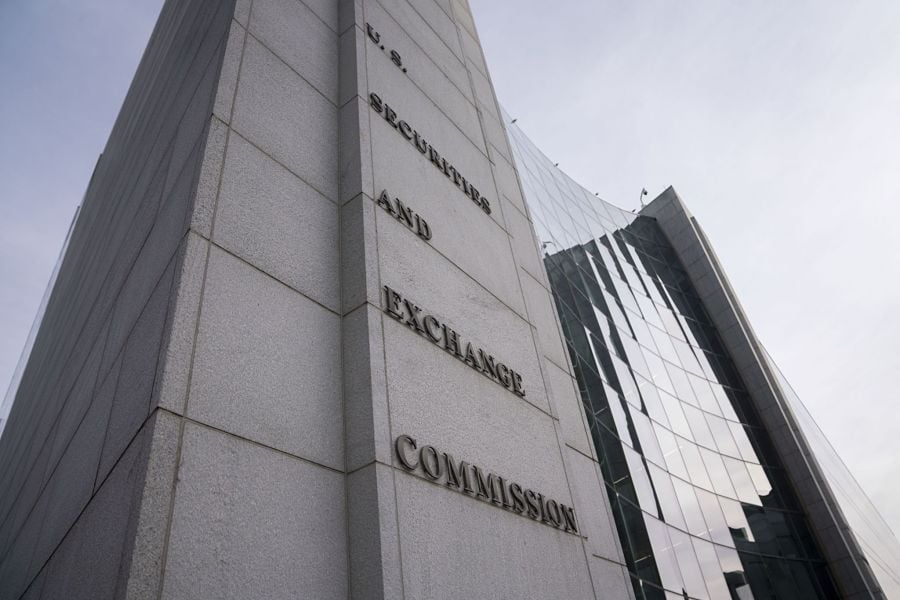

The SEC has been inundated with hundreds of comment letters this month from investors urging the agency to take action on a long-awaited Bitcoin ETF, following a strategic campaign by one of the industry's leading digital asset managers.
Nearly 200 comments have been published online in the past two weeks, after Grayscale Investments launched a media blitz to encourage the public to weigh in on the company’s application to turn its $26 billion Bitcoin Trust (BTC) into an ETF tied to the cryptocurrency’s spot price.
The recent surge in letters compares to just 14 letters sent to the Securities and Exchange Commission between October, when Grayscale filed to convert the ETF, and then end of January.
Grayscale's Feb. 10 tweet asks investors to share their thoughts and, combined with information on its website, provides them with detailed directions on how to navigate the commission’s website.
“Every day I have clients ask me about cryptocurrency and Bitcoin,” wrote Douglas W. Shultz, a wealth manager with Yorkshire Wealth Management in San Diego. “The cryptocurrency market has passed silver in terms of total market capitalization at various times. If silver can't be manipulated at these levels, neither can Bitcoin.”
In his Feb. 14 letter, Shultz cited management fees of 95 basis points for ProShares' Bitcoin Strategy ETF (BITO) and up to 2% for the Grayscale Bitcoin Trust — costs that he said get passed on to his clients.
“Being able to have an option that reduces this fee substantially, and participation in the direct ownership of Bitcoin, will allow clients the proper exposure they desire,” he said.
The commission has also asked the public to weigh in regarding Grayscale’s application and a similar application submitted by Bitwise Asset Management Inc., while highlighting concerns about the potential for investor fraud and price manipulation. The SEC regularly solicits comments from interested members of the public on proposed rule changes in order to make a more informed decision.
“It is also time to consider that the investors of today, 2022, are far more sophisticated and knowledgeable than investors of the past,” said Larry Boyer, president of the consulting firm New Horizons Advisors. “Ordinary people are using sophisticated trading tools and methods that a generation ago were reserved for the elite investment banks.”
Regulators allowed the first cryptocurrency futures-based products to begin trading in October, but permission for a Bitcoin ETF that directly invests in digital assets has repeatedly been denied.
Treasury Secretary Janet Yellen has been notoriously skeptical of crypto, and doubled down in a written response to the Senate Finance Committee during her confirmation hearing last year.
“I think we need to look closely at how to encourage their use for legitimate activities while curtailing their use for malign and illegal activities,” Yellen wrote. “We know they can be used to finance terrorism, facilitate money laundering, and support malign activities that threaten U.S. national security interests and the integrity of the U.S. and international financial systems.”
Advisers are generally warming up to the idea of digital assets as part of an allocation, however. A survey conducted in 2021 showed the percentage of advisers who report allocating to cryptocurrency in client accounts rose nearly 50% compared to the prior year.
More notably, 81% of surveyed advisers reported that they had received a question from a client sometime in the past 12 months.
“The SEC hinders my ability to perform as a fiduciary when a client tells me they want to own Bitcoin directly and the only option is an expensive OTC security,” Schultz wrote. “Please approve this conversion, and also work with Congress to provide direction in regards to crypto.”

Relationships are key to our business but advisors are often slow to engage in specific activities designed to foster them.

Whichever path you go down, act now while you're still in control.

Pro-bitcoin professionals, however, say the cryptocurrency has ushered in change.

“LPL has evolved significantly over the last decade and still wants to scale up,” says one industry executive.

Survey findings from the Nationwide Retirement Institute offers pearls of planning wisdom from 60- to 65-year-olds, as well as insights into concerns.
Streamline your outreach with Aidentified's AI-driven solutions
This season’s market volatility: Positioning for rate relief, income growth and the AI rebound
